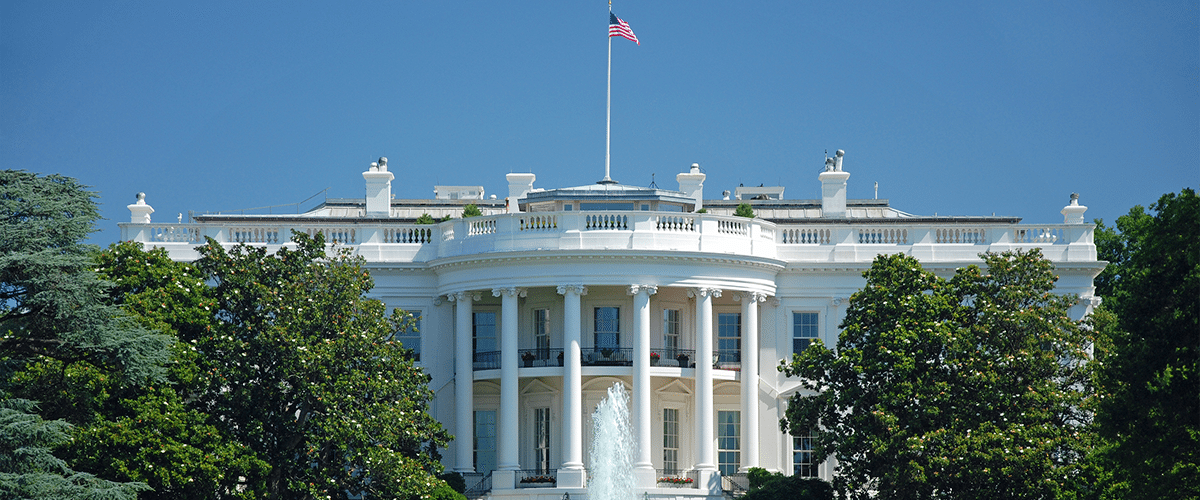[vc_row][vc_column][vc_column_text]
A new report projects that a marijuana-dubious Trump administration won’t stop the American cannabis industry from continuing to grow at double-digit rates over the next four years.
The legal cannabis industry in the U.S. will continue on its projected annual growth rate despite any opposition by the Trump administration, according to a new report from cannabis market research firm Arcview Market Research and its data partner BDS Analytics. Arcview’s 200-plus page 5th edition of The State of Legal Marijuana Markets projects that the state-legal cannabis markets will grow at a 27 percent compound annual growth rate through 2021.
“While the uncertainty created by the mixed signals coming out of the Administration may cause a temporary dip in some valuations of cannabis companies and some more risk-averse institutional investors and multinational companies may continue to stay on the sidelines, it won’t impact the growth of the market much at all,” said Troy Dayton, CEO of Arcview Market Research, in a statement. “No matter what the administration does, states will continue to issue cannabis licenses to a long line of applicants and licensed cannabis outlets will continue to have long lines of consumers ready to purchase this product from regulated establishments.”
Additional findings from the Arcview report include:
- North American legal cannabis sales grew 34 percent to $6.7 billion in 2016 and are projected to grow to $22.6 billion in 2021.
- North Americans spent $56.1 billion on legal and illicit cannabis products in 2016.
- Legalization has already helped erode the illegal cannabis market and this erosion will greatly accelerate in 2018 when adult use programs in California and Canada are implemented.
- By 2019, spending on adult use products will surpass that of medical cannabis spending. By 2021, 66 percent ($14.9 billion) will be generated from adult use programs and 34 percent ($7.7 billion) will come from medical use.
Eight U.S. states and Washington D.C. have so far legalized recreational marijuana, and 28 plus Washington D.C. have passed laws allowing marijuana use for medical purposes. Voters in California, Massachusetts, Nevada and Maine passed adult use measures in 2016, while voters in Florida, Arkansas, Montana, and North Dakota approved medical cannabis initiatives. According to the report, 21 percent of Americans can now purchase marijuana for recreational purposes, and 63 percent can now legally obtain cannabis with a doctor’s recommendation.[/vc_column_text][/vc_column][/vc_row][vc_row][vc_column][vc_single_image image=”17394″ img_size=”1200×250″ onclick=”custom_link” img_link_target=”_blank” link=”https://www.medicalmarijuanainc.com/report-u-s-legal-cannabis-market-growing-faster-dot-com-boom/”][/vc_column][/vc_row][vc_row][vc_column][vc_column_text]Federal lawmakers have already introduced a slew of marijuana-related bills in an effort to protect and expand the nation’s cannabis industry. Seventy-one percent of American voters want the federal government to back off from states that have implemented cannabis laws, according to a recent poll from Quinnipiac University.
“We’ve got all these other countries that are passing more laws and also other states, and presumably the federal government could end marijuana prohibition as soon as 2021,” Dayton said. “There’s never been a market that’s grown at 20-plus percent growth each year for 10 years, right? But that’s possible here.”
The report also found a significant jump in the number of available branded cannabis products. While sales of dried cannabis flower accounted for more than half of all cannabis product sales in 2016 in operating adult use states, shelves also now carry hundreds of branded products
“The explosion in the number of brands and products is dizzying,” said Arcview Editor-in-Chief Tom Adams. “When the #1 concentrate brand in CO grows 84 percent but its market share percentage remains constant it becomes clear we are in a remarkable business boom. It reminds me of 1998, when Google was just one of dozens of search engines, or 1988 when Blockbuster was just one of dozens of video store chains; future market leaders are just now being launched.”
Keep up with the latest developments in the legal cannabis industry by visiting our news feed.[/vc_column_text][/vc_column][/vc_row]






